Gaza solidarity protests sweep US university campuses despite police crackdown
By Maryam Qarehgozlou
Maryam Iqbal, a young pro-Palestine activist, says she had been doxxed, chemically attacked, smeared online, chased by the New York police anti-terrorism unit, brutalized by cops, suspended, evicted, and arrested after she joined youth-led protests over Israel’s war on Gaza at the Columbia University.
The “Gaza Solidarity Encampment,” which entered its sixth day on Monday, is organized by Columbia University Apartheid Divest (CUAD), Students for Justice in Palestine (SJP) and Jewish Voice for Peace.
Iqbal, a first-year student at Columbia’s associate institution, Barnard College, and an organizer with Columbia’s chapter of SJP, and other pro-Palestine students at the New York-based Ivy League school camped out overnight on the school’s lawns since Wednesday.
The protesters decried Israel’s relentless bombardment of Gaza, which has killed over 34,100 people and displaced nearly 2 million of the tiny territory’s estimated 2.3 million population, who are struggling with a man-made famine caused by Israeli aid restrictions.
Students set up approximately 60 tents on the campus’s south lawn. The tents were covered in signs that read “Liberated Zone” and “Israel bombs, Columbia pays”, urging the university administration to divest from corporations that profit from Israel’s genocidal war on Gaza.
The CUAD on its website also called for more financial transparency pertaining to Columbia’s investments, and the severing of academic ties and collaborations with Israeli universities and programs. The groups are also calling for a complete ceasefire in Gaza.
In response to these peaceful protests, Columbia’s president, Nemat “Minouche” Shafik on Thursday authorized the New York police department (NYPD) to break up the encampments, claiming that they “pose a clear and present danger to the substantial functioning of the university.”
Iqbal, 21-year-old Isra Hirsi, from Barnard College and daughter of Minnesota Congresswoman Ilhan Omar, her fellow Barnard junior Soph Askanase, and Maryam Alwan, a fourth-year Columbia student who also helped organize the protest, were all suspended and arrested on the campus.
Iqbal called it an “honor” to be doxxed, suspended, and arrested for Palestine.
“When I see that Palestinians in Gaza are telling us to keep protesting, nothing else matters. Everything I do is for Palestine and I regret nothing,” she wrote in a post on X, formerly Twitter, on Sunday.
“Columbia University may have devolved into a fascist police state, but it cannot arrest our joy. It cannot arrest our love. Most of all, it cannot arrest our commitment to Palestinian liberation,” Alwan wrote in a post on X on Saturday after her arrest.
In a post on Thursday, Hirsi also said she will “not be intimidated” for being suspended over standing in solidarity with Palestinians who have been “facing a genocide” for the past 200 days.
“We will stand resolute until our demands are met. Our demands include divestment from companies complicit in genocide, transparency of Columbia’s investments and FULL amnesty for all students facing repression,” she wrote.
Hundreds of faculty members at Columbia University in New York held a mass walkout on Monday in solidarity with students advocating for Palestine.#WeAreAllGaza pic.twitter.com/SVxujkRTzB
— Palestine Highlights (@PalHighlight) April 23, 2024
Pro-Palestine activists ‘doxxed’ by press, police
CUAD said in a statement that its members “have been misidentified by a politically-motivated mob.”
“We have been doxxed in the press, arrested by the NYPD [New York Police Department], and locked out of our homes by the university,” read the statement.
“We have knowingly put ourselves in danger because we can no longer be complicit in Columbia funneling our tuition dollars and grant funding into companies that profit from death.”
In a joint statement, the Columbia and Barnard chapters of the American Association of University Professors, condemned Shafik’s crackdowns on student-led pro-Palestinian protests, saying her summoning of the police was a “grotesque violation of norms of shared governance.”
Shafik’s decision to call the NYPD on her students came just a day after a Congressional hearing in which the president appeared to consent to charges of anti-Semitic behavior by faculty, promising harsh penalties and consequences to those accused of the same, which escalated the situation at the campus.
Activists believe that Shafik sought to avoid the same pitfalls that forced Harvard’s Claudine Gay and University of Pennsylvania’s Elizabeth Magill eventually to step down from their positions over what was described as an inadequate response to campus anti-Semitism.
The chapters’ statement also added that “in Wednesday’s hearing, President Shafik repeatedly claimed that she was inaugurating a new era at Columbia. Her actions thus far suggest that this era will be one of repressed speech, political restrictions on academic inquiry, and punitive discipline against the university’s own students and faculty.”
On Monday, US media reported that tensions on campus were surging, raising safety concerns while the university announced all classes will be virtual.
Shafik, who took the helm of the university less than a year ago and now is facing fresh calls for her resignation, said in a statement the decision was made to “deescalate the rancor and give us all a chance to consider next steps.”
A rabbi linked to the university even urged Jewish students at Columbia to stay home due to concerns about their safety as Passover, a major Jewish holiday, is set to begin Monday evening.
US President Joe Biden also condemned what he claimed as “blatant” anti-Semitism at Columbia University, calling it “reprehensible and dangerous.”
Yale University President has reportedly sent an email to students participating in the divestment encampment, threatening that 'Yale will pursue disciplinary actions according to its policies.'#GazaGenocide pic.twitter.com/ymNZARpUch
— Palestine Highlights (@PalHighlight) April 22, 2024
Boom in pro-Palestine activism
Since last October, after Palestinian resistance movement Hamas launched the surprise Operation Al-Aqsa Storm against occupied territories and Israel began its unprecedented onslaught on Gaza, university protests have seen a remarkable rise across the United States.
The boom in pro-Palestine activism has been accompanied by brutal campus crackdowns and a pervasive climate of suppression against pro-Palestine activists.
Earlier this month, Vanderbilt University expelled three students who allegedly forced their way past campus security personnel to enter the administrative building to join a protest outside of University Chancellor Daniel Diermeier’s office on March 26.
More than 20 other students who occupied the hallway outside of the chancellor’s office have received 15 months of probation, and their offenses will be documented in their official university records.
On April 13, fourteen students at Yale University went on an 8-day hunger strike as part of a week-long series of demonstrations from various students and organizations over the school’s connection to arms manufacturers currently supplying Israel with weaponry.
Hunger Strikers for Palestine have said they are willing to risk their “bodily health and well-being” in an effort to get the University to meet their demands.
The university acknowledged the ongoing student hunger strike on April 14 but made no other public comment on the move, and on Wednesday it announced that Yale will not divest from military weapons manufacturers, despite the backlash.
“The ACIR [Advisory Committee on Investor Responsibility] concluded that military weapons manufacturing for authorized sales did not meet the threshold of grave social injury, a prerequisite for divestment,” the university wrote in a statement.
Moreover, on Sunday, hundreds of pro-Palestine protesters gathered in Beinecke Plaza, at the center of the Yale University campus, calling on the Yale administration to disclose and divest their investments in weapons manufacturers aiding the Gaza genocide.
This was the third night that protesters maintained an encampment on the Plaza, which was set up on Friday night.
Yale University President Peter Salovey on Sunday threatened that Yale will pursue disciplinary action “according to its policies” in response to student violations of campus safety policies.
The Yale Daily News reported on Monday morning that at least 16 people had been arrested — including students – after police blocked off entrances during response to protests at Beinecke Plaza.
Journalists from the Yale Daily News were also threatened with arrest if they did not move from the plaza, according to reports.
The New York Times later reported that at least 47 people were arrested at Yale University on Monday.
Students at over a dozen other universities across the US, including Tufts University, Harvard University, Brown University, and Princeton University have also begun protesting in solidarity with the Palestinians by walkouts, marches or encampments.
UN Special Rapporteur for Palestine Francesca Albanese wrote an X post on Monday about the arrests at Columbia University and growing “securitization” and “repression” at European universities against students expressing solidarity with Palestine.
“This sustained, global Palestinian-driven mobilization is a bold new phase in an ongoing wave of solidarity with the Palestinian struggle against Israel's decades-old system of occupation, apartheid, and settler-colonialism and for the inalienable rights of the Palestinian people to justice, freedom, dignity.”
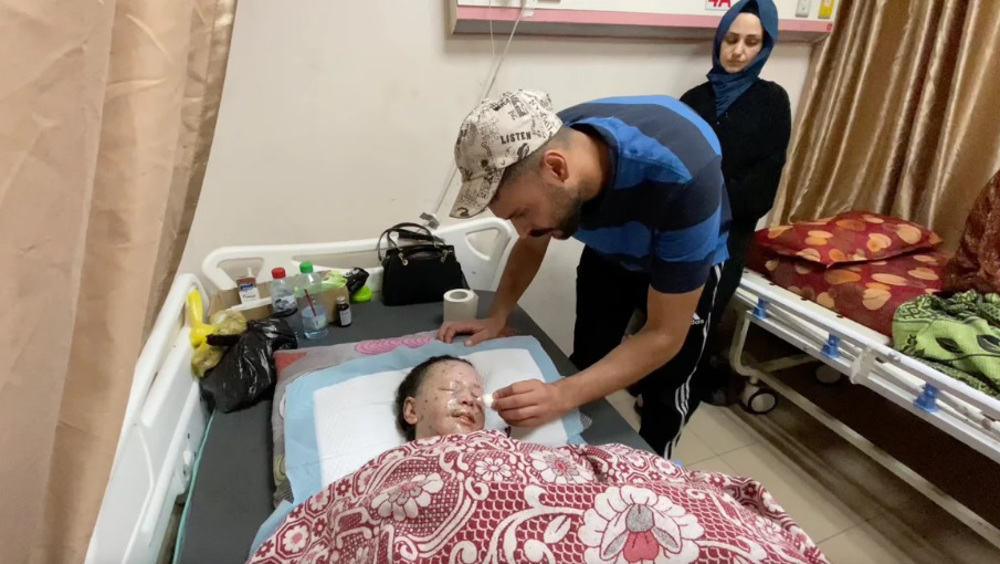
MSF: 70% of burn victims in Gaza are children, little chance of recovery
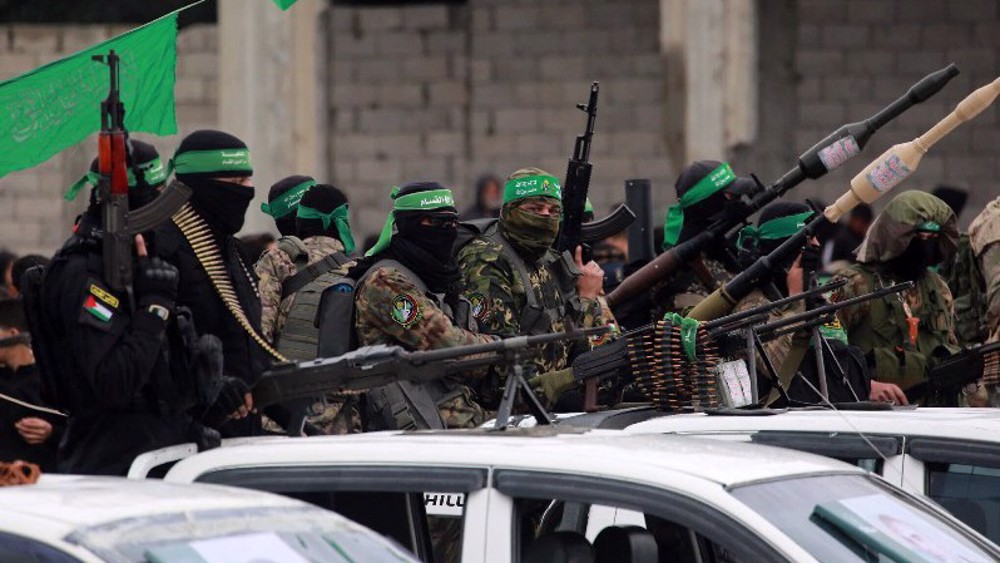
Hamas: No partial truce, only comprehensive deal acceptable

Yemeni forces target Israeli Nevatim Airbase in retaliatory missile strike
Global reactions, offers of assistance pour in after huge deadly explosion in S Iran
Iran pres. stresses collective, effective fight against terrorism in calls with India, Pakistan PMs
Iran declares holiday in Bandar Abbas port as fire still raging
VIDEO | NY protesters demand end to genocide on Global Day for Gaza
VIDEO | Pope Francis funeral mass held in St. Peter's Square
VIDEO | UK education activists focus on decolonization
Iran supports any measure to strengthen peace, tranquility: Pezeshkian
Iran, Russia agree to transfer gas via Azerbaijan: Minister


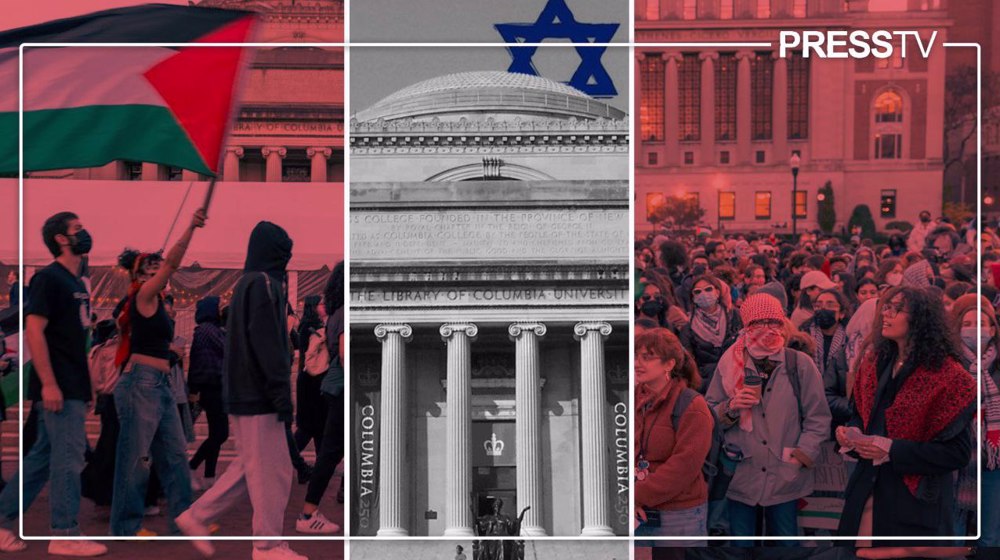



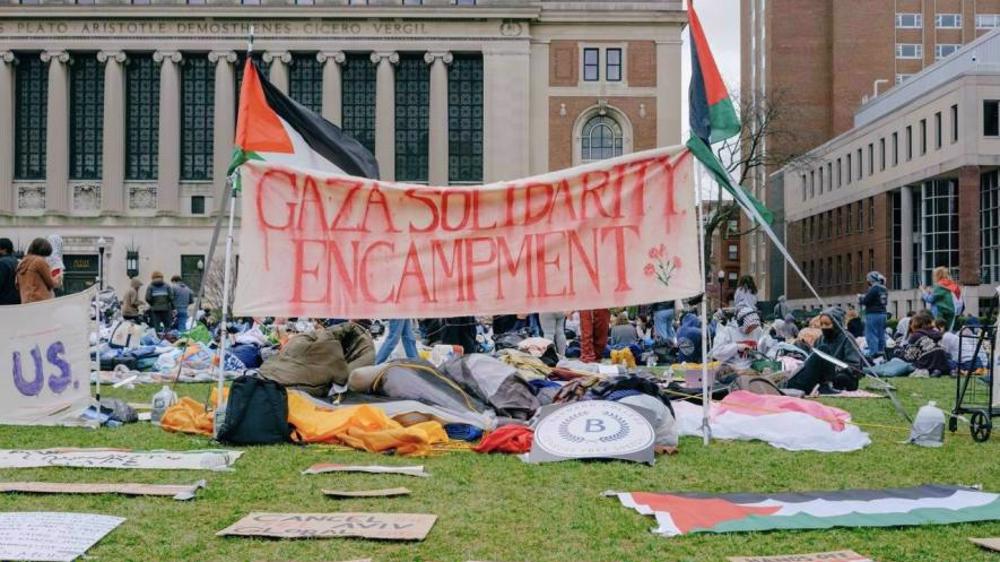
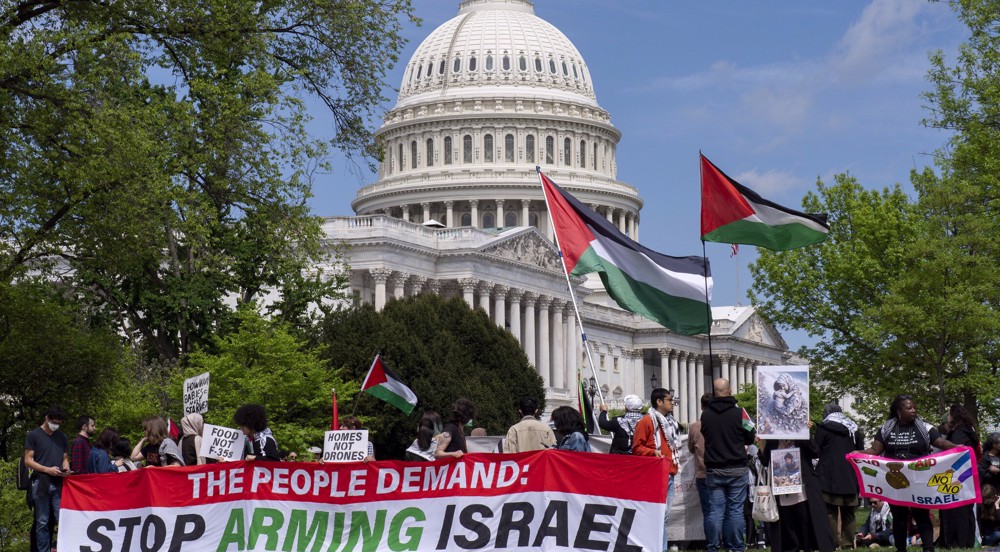
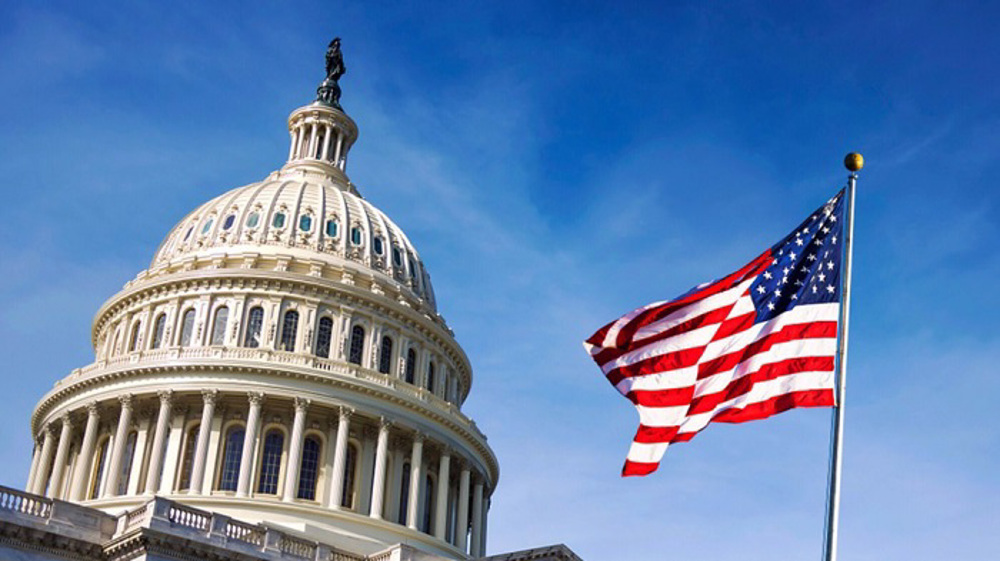
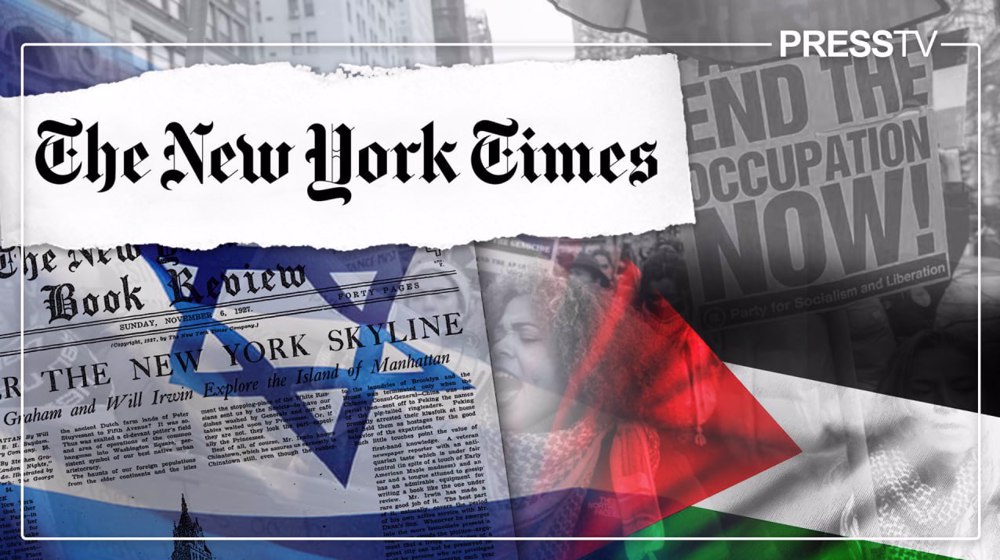
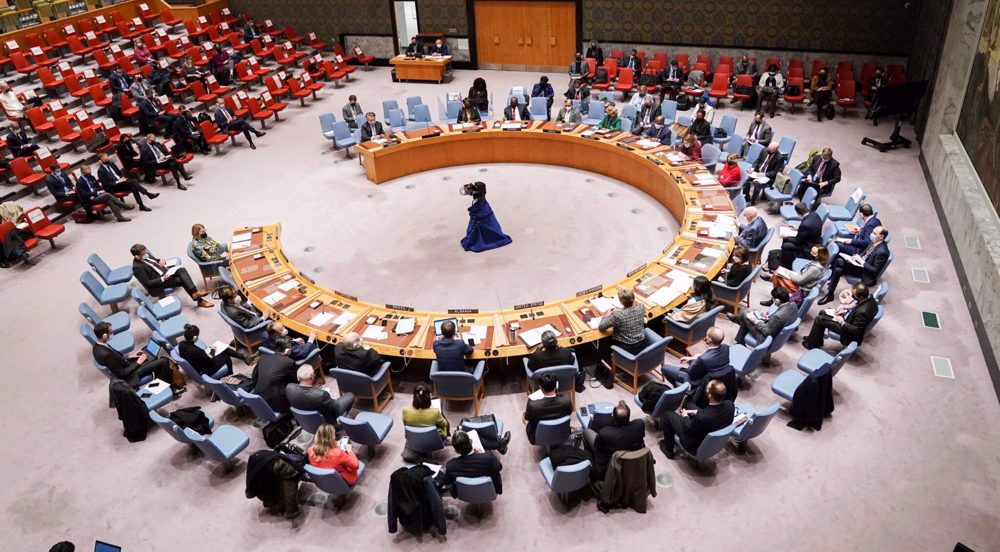

 This makes it easy to access the Press TV website
This makes it easy to access the Press TV website